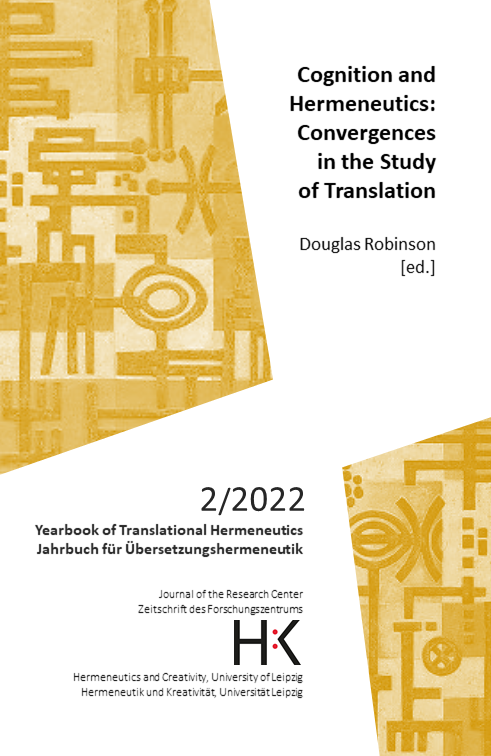Archives
-

Hermeneutics, Specialized Communication, and Translation
No. 4 (2024)This issue of the Yearbook of Translational Hermeneutics aims to bring together specialized communication, translation, and hermeneutics. The scholarly investigation of transcultural specialized communication encompasses approaches drawn from such diverse disciplines as translation studies, linguistics, communication studies, cultural studies, and the respective areas of study they imply. Translational hermeneutics, in turn, is fed by a variety of approaches ranging from understanding in terms of the art and craft of interpretation, through to approaches to translation research informed by literary studies, cognitive science, and sociology, and also philosophically oriented approaches, especially those framed by phenomenological and philosophical hermeneutics. It can be assumed that a more in-depth study of hermeneutics, specialized communication, and translation, has the potential to accommodate a wide range of topics and questions.
-

Translation as Event. Performing and Staging Translations
No. 3 (2023)This issue of the Yearbook of Translational Hermeneutics contains contributions broadly aimed at relating translation theory and performance studies together, focused specifically on the notion of translation as an event. At issue is the extent to which the activities, processes and products of translation can be characterized as performance, and whether the profiling of translators as performers illuminates their embodied experience, cognitive operations, and material practice. At issue, moreover, is whether theories and philosophies of the event and eventfulness can assist in describing what happens to a source text when it is translated, performed and transformed into a new guise – or even into a new mode of being. This goes particularly for texts subject to inter-semiotic and inter-medial translation and which are accordingly performed thanks to other modalities of expression.
-

Cognition and Hermeneutics. Convergences in the Study of Translation
No. 2 (2022)It has recently become more apparent that there are strong commonalities and convergences between the cognitive and the hermeneutic approach to translation studies, especially as the cognitive approach has turned more and more towards affect theory and the question of kinaesthetics, and as hermeneutic research has increasingly undertaken research into the actual processes of interpretation. The second issue of the Yearbook of Translational Hermeneutics is accordingly devoted to an enquiry into the relationships that can be established between these two research fields.
-

Engaging with Translation. New Readings of George Steiner's After Babel
No. 1 (2021)The first issue of the Yearbook of Translational hermeneutics (YTH) is dedicated to a ‘classic’ representative of the hermeneutic approach to translation studies, namely George Steiner, who passed away in February 2020. Published under the auspices of the Research Centre Hermeneutik und Kreativität, this issue is devoted to a celebration of Steiner’s 90th birthday (2019) and to the 45th anniversary of After Babel, which first appeared in 1975. After Babel has not lost its power to galvanise contemporary research in translation and interpretation studies even today. This installment of the Yearbook of Translational Hermeneutics hosts a dozen scholars’ engagements with Steiner’s work, as well as a supplement devoted to tributes to the author, book reviews and a discussion (forum).
